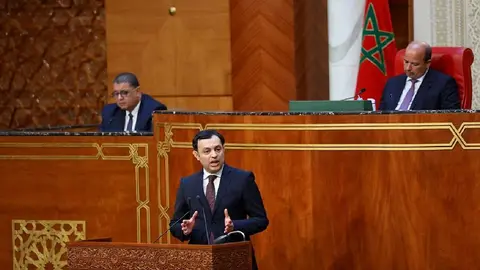The Moroccan employers in favor of increasing the minimum wage

The president of the CGEM, Chakib Alj, said in Casablanca that employers will apply the minimum wage increase “when the government decides." Alj came across journalistic comments about the possible non-compliance with the 5% increase in the minimum interprofessional wage (SMIG, for its acronym in French) provided for in the tripartite agreement with the Government and trade unions.
Referring to the increase in the SMIG, the head of the employers' representative assured that “we have no objection, what we are looking for is a balance, what we want is to protect jobs and create more jobs. According to Alj, the employers' association intends, through the changes they want to introduce in the Labor Code, to prevent employers from being afraid when hiring staff.” "The CGEM should not be demonized, what we want is for the social agreement to be respected by all parties,” he added. (NDLR, the minimum wage in Morocco is 2,828 dirhams, about 255 euros).

For his part, the vice president of the CGEM, Mehdi Tazi, affirmed that “at no time has the CGEM conditioned the increase in the minimum wage to the reform of the Labor Code and the promulgation of the Strike Law. Tazi took the opportunity to mention that in relation to the minimum wage, competition is increasing in neighboring countries and also in Europe. Specifically, he referred to Bulgaria and Romania as alternative destinations since they are two countries with very competitive salaries for international investors.
For entrepreneurs, inflation is having an impact on the entire value chain, which means an additional effort in their annual forecasts. The Central Bank of Morocco forecasts an inflation of 5.5 by 2023. Regarding the tripartite agreement, the CGEM met the same Friday with the Moroccan Minister of Employment, Younes Sekkouri who stated that the good news. Much progress has been made with the organic law regulating the right to strike. “The law is already in parliament and comes after 9 months of positive discussions with the employers' and trade unions."
The return to school of Moroccan businessmen was brought forward to the first day of September with the Finance Bill 2024 and social dialogue as the backbone of the vision of the CGEM employers' association for the course that starts now. During a press conference at its headquarters in Casablanca, the president of the CGEM assured that these are pragmatic and realistic proposals to help entrepreneurs and the economy as a whole to grow in a sustainable way. These proposals include reforms on Value Added Tax (TVA), local taxes and Income Tax. According to Alj, the CGEM has tried to reflect the concerns of companies of all sizes through consultations with sectoral, regional federations and specialized commissions of the employers' association.

The proposals include a redefinition of the scope of the TVA, broader exemptions and the generalization of the right to deduction and reimbursement. It is also proposed to reduce the TVA rates to two only. In another point of the proposals, the aim is to reduce the number of local taxes by grouping them into two main categories: real estate tax and economic activity tax.
The CGEM proposes a gradual reduction of Income tax over three years, with a target of a marginal rate of 30 percent by 2026. In the corporate tax section, it is suggested to exclude non-current products from the calculation of the tax base of the SI and to extend the limit of the SI to 20 percent for all companies that commit to invest 1500 million dirhams (about 135 million euros) or more over a period of 5 years, and not only for newly created companies. The aim is also to improve the neutrality of the restructuring operations of business groups.
Among the customs measures, the continuous reduction of the minimum contribution is contemplated with an eye to its elimination. A revision of the taxation of surcharges is proposed, specifically excluding them from the 10% withholding tax. In addition, it seeks to promote the development of startups, clearly defining what is meant by a startup and allowing non-resident companies in Morocco to benefit from the tax deferral regime. The recovery of VAT on management expenses for investment funds and the implementation of incentive schemes through employee stock options are also considered.

In order to contribute to the promotion of the circular economy and renewable energies, the CGEM proposes to apply VAT only on the margin of circular economy products in the plastics and metallurgy sectors. In addition, it is suggested to reduce the customs duties for energy storage battery to 2.5%.
In the tourism sector, the employers' association proposes to generalize the 10 percent VAT rate for the entire tourism industry and create an adapted fiscal framework for rentals furnished by individuals. In summary, the CGEM's tax proposals point to a series of ambitious reforms that seek to improve tax efficiency, foster economic growth and attract investments to Morocco. The success of these proposals will depend on their effective implementation and on the collaboration between the Government, the CGEM and the trade unions.









